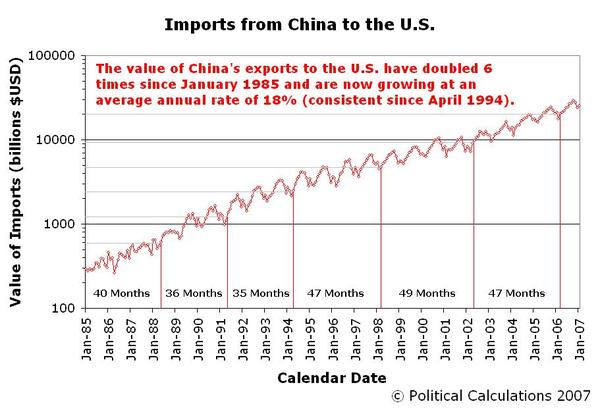Please Stop the Aid!
In an interview with Spiegel Online, Kenyan economics expert James Shikwati made an impassioned plea for first world nations to stop sending aid to third world nations.
Shikwati: ... for God's sake, please just stop.
SPIEGEL: Stop? The industrialized nations of the West want to eliminate hunger and poverty.
Shikwati: Such intentions have been damaging our continent for the past 40 years. If the industrial nations really want to help the Africans, they should finally terminate this awful aid. The countries that have collected the most development aid are also the ones that are in the worst shape. Despite the billions that have poured in to Africa, the continent remains poor.
He explains why rich nations shouldn't be the ones helping poor nations -- and what happens to the corn when rich nations ship it over.
Shikwati: ... and at some point, this corn ends up in the harbor of Mombasa. A portion of the corn often goes directly into the hands of unsrupulous politicians who then pass it on to their own tribe to boost their next election campaign. Another portion of the shipment ends up on the black market where the corn is dumped at extremely low prices. Local farmers may as well put down their hoes right away; no one can compete with the UN's World Food Program. And because the farmers go under in the face of this pressure, Kenya would have no reserves to draw on if there actually were a famine next year. It's a simple but fatal cycle.
SPIEGEL: If the World Food Program didn't do anything, the people would starve.
Shikwati: I don't think so. In such a case, the Kenyans, for a change, would be forced to initiate trade relations with Uganda or Tanzania, and buy their food there. This type of trade is vital for Africa. It would force us to improve our own infrastructure, while making national borders -- drawn by the Europeans by the way -- more permeable. It would also force us to establish laws favoring market economy.
The Cato Institute recently hosted an event about this very point. Pan-African Free Trade Agreement: Helping Africa through Free Trade. (If you visit the event's page, you can watch it, listen to it, or read a full transcription of it.)
African tariffs are some of the highest in the world.
While OECD countries cut tariffs from an average of 23.7 percent to just 3.9% in the 20 years from 1983, Sub-Saharan Africa only cut its tariffs from 22.1% to 17.7%.
And astonishingly, many African countries impose tariffs on the import of medicines, and even Tanzanian-made anti-malaria bednets.
These are, effectively, killer tariffs.
While the world as a whole cut tariffs by 84 percent between 1983 and 2003, Africa only reduced theirs by 20%.
For most Africans, it is harder to trade with those across African borders than with distant Europeans and Americans.
In 1997, the World Bank found that countries in Sub-Saharan Africa imposed an average tariff of 34% on agricultural products from other African nations, and 21% on other products.
The results are clear.
Only 10% of African trade is with other African nations.
The first world isn't doing the third world any favors with our generous aid packages and handouts. We're preventing the Africans from taking the tough -- but responsible -- steps to improve their own welfare. It's time to stop coddling the contintent and start expecting it to walk on its own.
Senator Bill Frist wrote about his ONE Vote '08 campaign over at Captain's Quarters this morning. He wants Presidential candidates to publically commit to increasing aid to Africa. While it sounds like a noble goal, I'm afraid that it would only enable the African nations to continue electing corrupt politicians and continue to duck responsibility for their own welfare.
Let's listen to James Shikwati and make our own tough decision. Just stop. Please.
